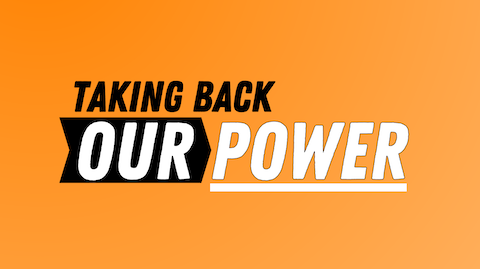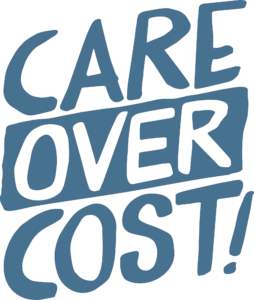News & Media
February 11, 2025

Medical debt is a growing crisis in the United States, disproportionately affecting communities with lower incomes and constrained resources. In Flint, Michigan, where residents face compounded health challenges due to historical water contamination and systemic inequities, medical debt worsens already significant financial and health burdens. Understanding the scale of this issue, its causes, and potential solutions is critical to addressing this pervasive problem.
The Medical Debt Crisis in the US
Medical debt affects over 100 million Americans, and its effects are particularly devastating for uninsured and underinsured populations experiencing financial challenges. The high out-of-pocket cost of care frequently leaves people with staggering medical bills they can’t pay, dragging them into debt. These burdens often lead to delays in care, exacerbated health issues, financial instability or even medical debt bankruptcy, and a cycle of poverty that already disproportionately impacts communities of color.
Why Medical Debt Hits Disadvantaged Communities Harder
Communities like Flint are particularly vulnerable to the negative impacts of medical debt for several reasons.
Economic Disparities
In the US, income is the single largest social determinant of health, meaning that individuals’ access to health-promoting resources — things like safe places to exercise and play, affordable full-service grocery stores, and nearby pharmacies and medical centers — is often indirectly decided by income level. Because higher-paying jobs are also more likely than low-income roles to provide health insurance as part of their benefits packages, pay can also determine whether someone can readily receive medical care as a whole.
As of 2023, Flint's median household income was just over $33,000, well below the national average of $80,610. 40.7% of residents live below the federal poverty line, experiencing limited access to the wellness amenities and preventive healthcare that could help them avoid major health problems. This simultaneously increases the likelihood of developing serious illnesses and makes unexpected medical expenses all the more difficult to recover from, especially for households with no emergency funds or other savings.
Health Inequities
Flint residents have experienced one of the worst environmental crises in recent American history: the 2014 water crisis, in which the town’s drinking water became contaminated with lead. This caused a variety of serious and even lethal health problems, including lead poisoning, Legionnaires’ disease, mental illness, learning disabilities in children, organ and hormone dysfunction, skin problems, hair loss, and more.
These issues created the need for high levels of medical care, further compounding the financial strain on families already struggling to make ends meet.
Lack of Consumer Protections
While some states have implemented policies to shield residents from predatory medical debt collection practices, Michigan’s protections remain limited. The state does not require care providers to offer financial assistance programs or hospital payment plans. It also places no legal limits on the following:
- Medical debt interest rates
- Property liens, home foreclosures, or wage garnishments imposed by medical debt collection agencies
- Medical debt reporting to credit agencies, which can damage consumer credit scores and future economic opportunities; this practice is, fortunately, now banned at the federal level
As a result, Flint residents have faced aggressive medical debt collection strategies that put them at risk for credit damage, loss of income, cascading financial crises, and even housing stability.
What to Do About Medical Debt? Solutions and Support
Several initiatives, policies, and organizations offer hope for those struggling with medical debt.
New Federal Government Relief Policies
There are some national government policies that can provide a measure of debt relief. One is the 2023 Medical Debt Relief Act, which prohibits reporting medical debt on consumer credit reports. Another is the American Rescue Plan Act (also referred to as the medical debt forgiveness act), whose funds can be allocated to provide medical debt forgiveness at the community level. Thanks to a coalition of local organizations, this federal stimulus funding will help to eliminate healthcare debt for over 10,000 Flint residents.
Consumer Protection Resources
Federal and state policies are beginning to address medical debt more comprehensively. The Consumer Financial Protection Bureau ensures that consumers are informed of their medical billing and debt collection rights. Resources like payment plans and guided ways to dispute medical debt can help individuals navigate these challenges.
Nonprofit Advocacy and Partnerships
Many nonprofit health and social justice organizations work to protect vulnerable Americans from the ruinous impacts of healthcare debt. For example, Michigan United has multiple campaigns aimed at improving affordable healthcare access for everyone and eliminating health insurance company political corruption.
Michigan United also partners with other nonprofit organizations like Undue Medical Debt and Care Over Cost. The former works to forgive medical debt on a large scale by purchasing it in bulk and relieving eligible families, while the latter assists patients with health insurance claim denials.
Medical debt remains a pressing issue for millions of Americans, with devastating effects on Flint, Michigan, and other vulnerable communities. By understanding the systemic causes and human impacts of medical debt and supporting the nonprofits that work to eliminate it, we can work toward a future where financial hardship no longer stands in the way of health and well-being.
Understand Your Healthcare Rights With Michigan United
Michigan United is a broad, statewide coalition working to reform our broken healthcare and immigration systems, protect our environment, end mass incarceration, and make essential services accessible to all. We develop leadership tools for our members so they can eradicate the root causes of racial and economic injustice.
At Michigan United, we are steadfast in our belief that every person deserves access to quality healthcare, unencumbered by financial barriers or discriminatory practices. Health is a fundamental human right, not a privilege reserved for the fortunate few.
Is your insurance company refusing to pay for the care you need? Want to end this problem in Michigan for good? In addition to reaching out to Care Over Cost, you can help others by signing these petitions to demand care and joining our fight with a group near you.
Contact us today to get started!
Tap here for upcoming events
Ready to Do Something Now?
Join one of our projects!

Join "Taking Back our Power" and take a stand against money in Michigan politics
We are a coalition of working families in Michigan fighting to pass comprehensive state legislation to prevent regulated monopoly corporations and companies seeking government contracts from making political contributions. We can no longer let them buy their way out of accountability and drown out the voice of the people!
Join "Care Over Cost" and help us get people the healthcare coverage promised by their insurers
In Michigan and all across the country, our members are fighting individual care denials and are WINNING people the care they need--and paid fo! Together, we are working to transform our health care system to put Care Over Cost and people over profit.


Become a Relational Organizing Leader
Relational organizing is defined as “preparing & supporting people to bring the power within their existing relationships to affect change.” In actuality it is turning a contact into a conversation and then into a person empowered to create change where they live.
Recent News & Media




